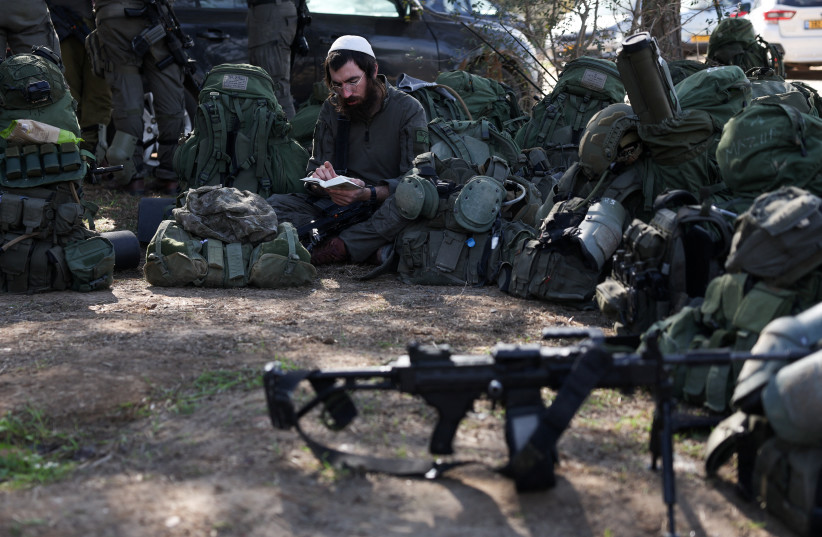‘In these difficult days of war, it is impossible to ignore the large number of fallen soldiers from the religious-Zionist camp,” read a Tuesday evening post on X.
“We should salute this community that gives its life for the defense of Israel.”
What makes that post interesting is the man who wrote it: leading left-wing activist Uri Zaki, the executive committee chairman of Meretz, not a party with a particular soft spot for religious Zionism or its adherents.
Yet the reality of this war prompted Zaki to highlight that an inordinate percentage of the fallen have come from the religious Zionist community.
For instance, of the 11 IDF soldiers who fell in Gaza from Monday through Wednesday, eight came from the religious Zionist camp. And of the 167 fallen since the beginning of the ground invasion, some 30 have come from settlements in Judea and Samaria.

Almost half of Israel's fallen in this war have come from the religious Zionist camp
Channel 12 political commentator Amit Segal said Wednesday that 45% of the fallen in this war came from that camp, and that just as Israel salutes the Druze because of their sacrifice – six Druze soldiers fell in the war, and as a result, there was talk of changing the Nation-State Law, which the Druze community finds offensive – so too should there be acknowledgment of the sacrifice being paid by the religious Zionist community.
Some may take issue with this, saying that going through the list of the fallen and dividing them into sectors just perpetuates the divisions in the country, which helped lead to the Hamas decision to strike now when the country was so badly divided.
But the grisly statistics are worth pointing out for two reasons. The first is to recognize and try to duplicate elsewhere the values that are being transmitted within the religious Zionist camp toward the love of land, country, people and Torah of Israel, and a willingness to sacrifice for the collective.
The religious-Zionist camp – as distinguished from the hard right-wing Religious Zionist party that wrongly appropriated the name – is a big tent that includes left-wing members of religious kibbutzim and right-wing residents of settlements like Elon Moreh.
Inside the religious-Zionist rubric, you have Chili Tropper and Elazar Stern on the Left side and Bezalel Smotrich and Orit Struck on the Right.
Though they may differ on many issues – from possible concessions to Palestinians to LGBTQ rights – most within this camp agree that there is religious significance in the reborn State of Israel and that defending it is both a historic privilege and a religious value.
Furthermore, those in this camp generally educate their children with these values, something that can be seen in the high percentage of recruits from religious-Zionist schools opting to go into combat units.
The disproportionate share of religious soldiers who have fallen reflects their disproportionate presence in these units.
The second reason why it is worth mentioning the number of religious Zionists who have fallen is that, over the years, parts of this community have been demonized as “messianists” and “fascists.”
One of the flagship institutions of the right flank of this community – the Bnei David pre-army IDF preparatory yeshiva in Eli – has been especially demonized, with its head, Rabbi Yigal Levenstein, literally chased out of Tel Aviv a couple of weeks before October 7, with protesters shouting at him: “Go away, fascist! Go back to the settlements; you don’t belong here!”
Fifteen Bnei David alumni have fallen so far in this war.
As Segal said, “For years there was a campaign of defamation and slander against religious Zionism and settlers – for example, against Eli – it is poisonous, needs to be closed, [and] needs to be blown up.” Perhaps, he said, it is now time to think of this camp differently.
Or, as investigative journalist for the Uvda program Yair Eizenberg wrote on X recently, “I apologize to the religious Zionist community, in which I was raised, and which I have often criticized. I apologize for dismissing what I saw as its militarism and its sanctification of bereavement over life.”
Metaphorically referring to the religious Zionist community as a “factory,” he wrote: “I thank the factory that is responsible for raising masses of excellent young people who are willing to pay with their lives to protect mine.”
To which we can only add: Yes, thank you, indeed.
